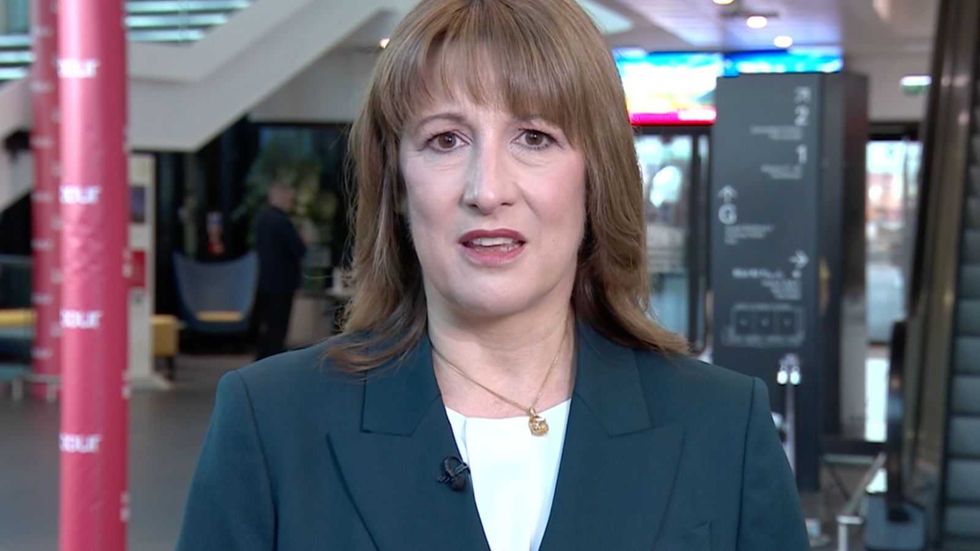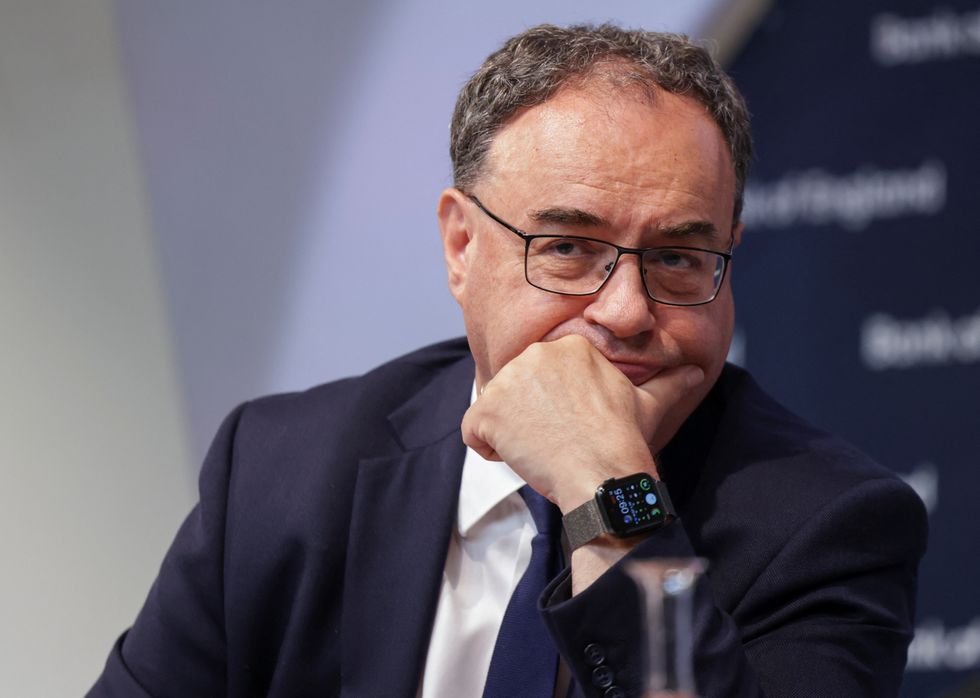Rachel Reeves wants to appoint outsider to lead UK banking watchdog

GB News' Christopher Hope speaks to Rachel Reeves, Shabana Mahmood and Ed Miliband after Sir Keir Starmer's speech |
GB NEWS

The Chancellor signals her intention to appoint someone from outside traditional watchdog circles
Don't Miss
Most Read
Britain’s banking supervision is set for major change as the Chancellor is seeking candidates from beyond the conventional regulatory establishment to lead the Prudential Regulation Authority.
Rachel Reeves has signalled her intention to appoint someone from outside traditional watchdog circles, marking a break from previous practice.
The Treasury will launch the recruitment process in the coming days, potentially as soon as next week.
This forms part of the Chancellor’s broader plan for financial regulation that prioritises economic growth alongside prudential oversight.
TRENDING
Stories
Videos
Your Say
The search for Sam Woods’s successor represents a pivotal moment in reshaping how Britain’s banks and insurers are supervised.
Katharine Braddick, currently Barclays’ group head of strategic policy and adviser to the chief executive, has emerged as a leading contender for the position.
Her credentials span both public and private sectors.
Before joining Barclays in 2022, Ms Braddick served as director-general for financial services at the Treasury.

Britain’s banking oversight is poised for reform as the Chancellor looks outside the traditional regulatory sphere to appoint a new head of the Prudential Regulation Authority
|GETTY
She played a central role in Brexit-related financial negotiations and previously worked at the Financial Services Authority, gaining wide experience across regulatory frameworks.
Government insiders believe Ms Braddick would be a strong candidate should she pursue the role.
Her three-and-a-half years at Barclays have provided commercial insight alongside her extensive Whitehall background.
The Treasury’s advertisement for the post marks a decisive shift from conventional appointments.
The recruitment process, expected to last several months, will focus on finding leadership capable of reimagining financial supervision.
Internal candidates remain limited, with David Bailey, the Bank of England’s executive director for prudential policy, among few establishment figures being considered.

The Chancellor’s preference leans towards external expertise
| BBCHowever, the Chancellor’s preference clearly leans towards external expertise.
A Treasury spokesperson said: “Growing the economy is the Chancellor’s number one mission. Every regulator has a part to play by regulating for growth not just risk.”
That message reflects the Government’s wider shift towards a growth-focused regulatory model.
Recent senior appointments have followed the same principle, including Bank of America investment banking veteran Jim O’Neil as second permanent secretary to the Treasury.
The Chancellor’s growth-oriented approach has already prompted significant changes in financial oversight.
Both the Prudential Regulation Authority and the Financial Conduct Authority have removed diversity and inclusion requirements for financial institutions.
The FCA has also withdrawn proposals to name firms under investigation, following industry concerns about reputational damage.
These changes are intended to reduce administrative burdens and support competitiveness in the financial sector.
Earlier this year, the Payment Systems Regulator was dissolved, demonstrating the Government’s readiness to remove what it considers unnecessary oversight bodies.
Nikhil Rathi was reappointed as FCA chief executive following negotiations over a new growth-driven five-year strategy.
These reforms represent a major recalibration of regulatory priorities, balancing prudential safeguards with the need to boost Britain’s financial competitiveness.
Sam Woods’s departure after two terms creates uncertainty about the Bank of England’s future leadership structure.
LATEST DEVELOPMENTS:

Andrew Bailey's term as Bank of England governor ends in 2028
| PAAs PRA chief executive, he also serves as deputy governor and sits on both the Bank’s Court of Directors and the FCA board.
His potential candidacy for Andrew Bailey’s position as governor, when the current term ends in 2028, remains unclear.
Mr Woods’s next move is expected to attract close attention in the City given his extensive regulatory experience.
The timing is significant, arriving just two months before the Chancellor’s Autumn Budget.
Ms Reeves faces the challenge of raising additional revenue through tax measures while maintaining her focus on economic growth.
The PRA appointment is seen as a crucial test of Labour’s ability to balance financial stability with its ambitious plans for expansion.
More From GB News










